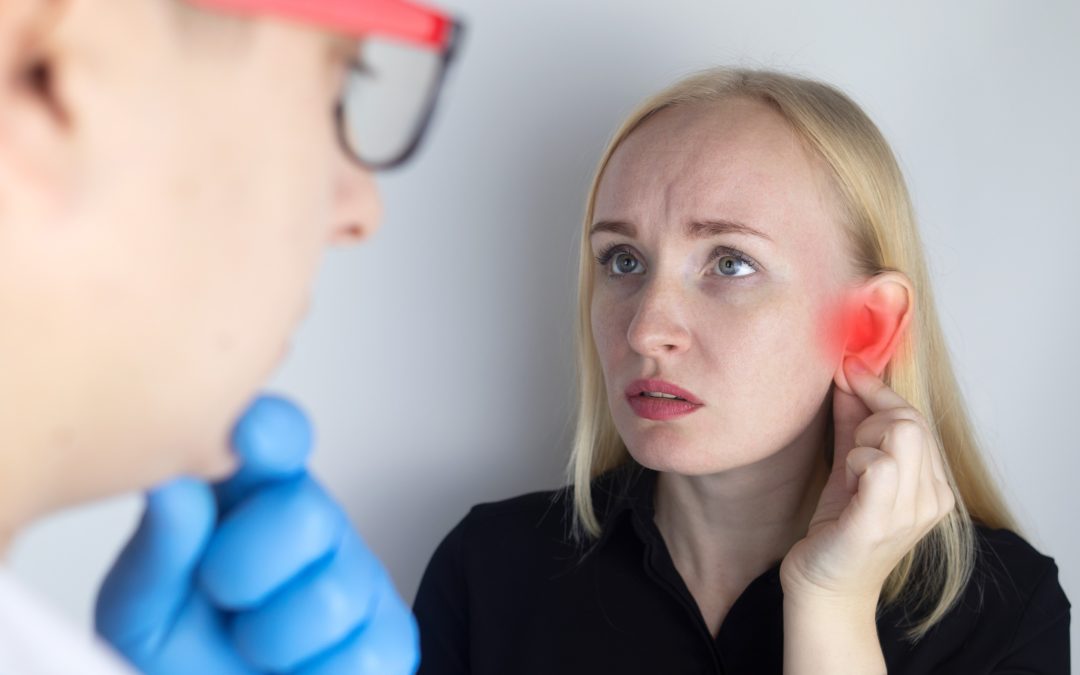Having trouble hearing? You’re not alone! Hearing loss affects millions of people each year, so it’s vital to be informed about the different types and their causes.
In this article, we’ll explore the various kinds of hearing loss—from mild to severe, temporary or permanent—and their associated treatments and tips for improvement. Keep reading to find out more about the different forms of hearing loss.
Sensorineural Hearing Loss
Sensorineural hearing loss is the most common type of permanent hearing impairment. It can be caused by various factors, including age-related damage to the nerves that connect the inner ear to the brain, exposure to loud noises, certain medications, illness, or trauma.
People with sensorineural hearing loss experience difficulty understanding speech and may notice muffling sounds, especially in noisy settings. Through specialized treatment such as hearing aids or cochlear implants, individuals with this condition may improve their ability to understand speech and sounds.
It’s essential to consult with an audiologist if you’re experiencing any signs of sensorineural hearing loss so they can develop a care plan tailored specifically for you.
Conductive Hearing Loss
Conductive hearing loss occurs when there is something preventing sound from reaching the inner parts of the ear and causing a decrease in sound perception. Common causes include wax buildup, a foreign object in the ear or punctured eardrum, inflammation or infection, and abnormal bone growths that interfere with sound vibrations reaching the inner ear.
This hearing loss can be corrected medically or surgically to restore hearing. Audiology assessments should be completed to determine if conductive hearing loss is present and if it can be rectified with medical treatment.
While in some cases this may mean surgery, other treatments may also be available. It’s essential to consult an audiologist to find what options may help reduce or eliminate conductive hearing loss.
Mixed Hearing Loss
Mixed Hearing Loss is one of the two types of sensorineural hearing loss and can be caused by different factors. It typically involves a combination of unilateral or bilateral sensorineural, conductive, and mixed losses.
A common cause is genetic and may involve an inherited malformation in the cochlea and a progressive deterioration due to ageing or possibly chemical exposure. Other causes could include injury to the inner ear, physical trauma, illnesses and use of specific drugs or medications.
With proper diagnosis and treatment like hearing aids or cochlear implants, it is possible to reduce hearing loss associated with Mixed Hearing Loss. Speak with your healthcare provider for more information on solutions for Mixed Hearing Loss.
Unilateral Hearing Loss
Unilateral hearing loss is the loss of hearing in one ear. This type of hearing loss can result from various factors such as loud noise, disease, genetics, or injury. It can make it difficult to understand what people are saying in crowded spaces with lots of background noise.
People living with unilateral hearing loss may also experience difficulties interpreting sound localization and direction. Untreated, individuals can experience a greater risk of social isolation or difficulty reaching their academic goals.
Thankfully, there are several ways to manage unilateral hearing loss such as advanced technology or listening devices that aid communication. With help from healthcare professionals, those affected by unilateral hearing loss have many options available to address the challenges they may face.
Central Auditory Processing Disorder (CAPD)
Central Auditory Processing Disorder (CAPD) is a complex auditory disorder that affects one’s ability to interpret and process sounds. It is not a hearing loss nor is it medically treatable, but individuals living with CAPD may experience difficulties understanding speech, recognizing subtle differences in sounds, filtering out background noise, and focusing on the right source of sound when multiple sources are present.
If left untreated, those affected by CAPD may struggle academically due to the impact it has on their ability to process spoken language or follow directions. Early identification and intervention are both essential for helping individuals of all ages succeed despite having this disorder.
For those who do have CAPD interventions like special education classes and assistive technologies, it can be incredibly helpful in mitigating the effects of the disability and improving overall success.
About Us
At Carlisle Hearing Center, we are dedicated to providing quality care toward improving your hearing health and quality of life. Hearing-related issues can often make you feel alone, but with our technologically advanced and affordable hearing solutions and top-notch advice, you can confidently live your life, assured that we are always looking out for you and your loved ones!
Contact us today to schedule your free hearing test, or visit our website to learn more about our Signia rechargeable hearing aids solution.

